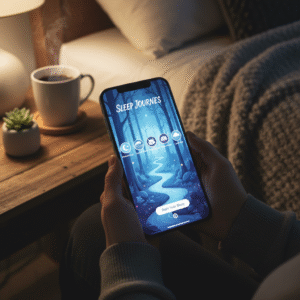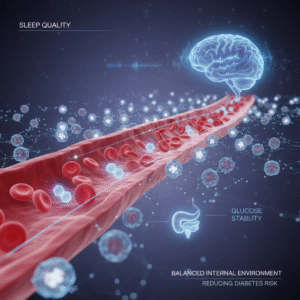Treating insomnia in veterans may significantly reduce suicidal ideation. Learn how CBT-I therapy helps save lives and improve mental health. Get resources & support. #VeteransSleep
Treating insomnia in veterans may do more than improve sleep—it could help save lives. A recent study shows that addressing insomnia through targeted therapy significantly reduces suicidal ideation among veterans, offering renewed hope and powerful clinical implications.
Sleep is foundational to mental health, emotional regulation, and overall resilience. For military veterans, many of whom struggle with insomnia due to trauma, stress, or PTSD, effective treatment may be the key to preventing tragedy.
Why Treating Insomnia in Veterans Is a Mental Health Priority
Insomnia is not just a nuisance—it’s a serious disorder. Among veterans, insomnia symptoms are both common and chronic. When untreated, they can intensify underlying mental health conditions like depression, anxiety, or PTSD—greatly increasing suicide risk.
📊 Key Study Highlights:
Participants: 405 veterans with diagnosed insomnia disorder
Treatment: Up to 6 sessions of CBT-I (Cognitive Behavioral Therapy for Insomnia)
Outcome: A 33% reduction in suicidal thoughts following treatment
This is a significant clinical finding: by treating insomnia, we may prevent suicide. The study underscores the life-saving power of sleep therapy for a population that urgently needs it.
Understanding Insomnia and Its Impact on Veterans
Insomnia involves difficulty falling asleep, staying asleep, or waking up too early—and it impacts daytime functioning, cognition, and emotional health. For veterans, insomnia often coexists with military-specific challenges:
PTSD and nightmares
Hypervigilance during sleep
Deployment-related circadian disruption
Medication side effects
Insomnia in veterans is more than restlessness—it’s a disruptive condition that affects every facet of life. That’s why treating it with proven, non-drug strategies like CBT-I is critical.
How CBT-I Works to Treat Insomnia in Veterans
Cognitive Behavioral Therapy for Insomnia (CBT-I) is a highly effective, non-pharmacological treatment that directly addresses the psychological and behavioral causes of poor sleep. It’s especially valuable for veterans, as it avoids sedatives and teaches lifelong skills.
🧠 CBT-I Techniques Include:
Sleep restriction therapy: Limits time in bed to build sleep efficiency
Stimulus control: Reinforces a strong mental connection between bed and sleep
Cognitive restructuring: Challenges anxious thoughts about not sleeping
Relaxation training: Teaches breathing and calming techniques before bed
This structured approach has been adapted for military-specific CBT-I programs, available in many VA systems and mental health clinics.
Why Sleep Treatment Reduces Suicide Risk
The connection between insomnia and suicidal ideation is clear: sleep deprivation impairs emotional regulation, increases hopelessness, and reduces problem-solving ability. For veterans with trauma histories, this risk is compounded.
When insomnia is treated, patients report:
Improved mood stability
Reduced anxiety and depression symptoms
Enhanced emotional control
Better engagement with daily life and therapy
In short, better sleep builds mental resilience, and resilience reduces suicide risk. Addressing sleep is often the first—and most effective—step in mental health treatment for veterans.
Conclusion
The evidence is clear: treating insomnia in veterans is not only about improving rest—it’s about preserving life. Therapies like CBT-I offer hope, healing, and a pathway toward emotional balance and long-term well-being.
By raising awareness among healthcare providers, veterans, and families, we can ensure that no one suffers silently. Sleep is not a luxury—it’s a vital part of mental health.
Frequently Asked Questions
How does CBT-I help veterans struggling with sleep issues?
CBT-I teaches structured techniques that retrain the mind and body for healthy sleep. Veterans learn how to control thoughts, habits, and behaviors that disrupt rest—without relying on medication.
Where can veterans access insomnia treatment like CBT-I?
CBT-I is available through VA hospitals, community-based outpatient clinics, and many telehealth platforms. Veterans can also explore the AASM and SleepEducation.org for online support tools and CBT-I referrals.








